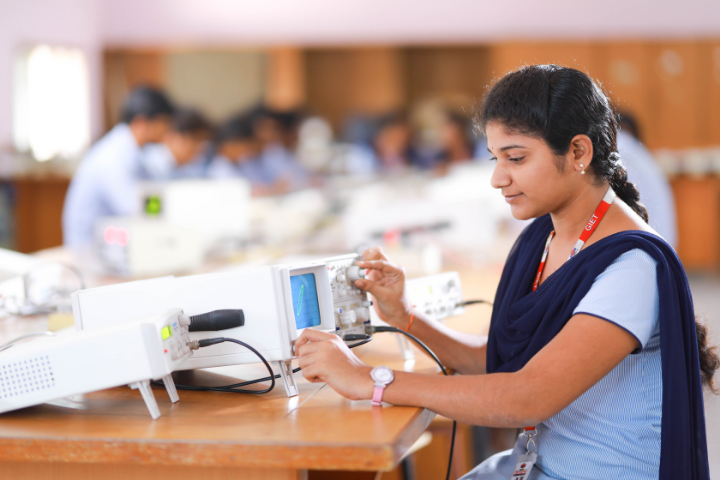Department Profile
Overview
Our department is committed to staying at the forefront of technological advancements and ensuring that our students are equipped with the knowledge and skills necessary to meet the demands of the ever-evolving electrical and electronics industry. With a team of dedicated faculty members, cutting-edge facilities, and industry collaborations, we strive to provide a comprehensive and dynamic learning environment.
Genesis
The genesis of the EEE Department at Godavari Global University can be traced back to the establishment of the college itself. Recognizing the growing importance of electrical and electronics engineering in various sectors, the department was founded with a vision to produce highly skilled and competent engineers in this field. Since its inception, the department has experienced tremendous growth and has continually adapted to meet the changing needs of the industry and academia. Our faculty members, with their vast knowledge and expertise, are passionate about teaching and are actively involved in research and development activities.
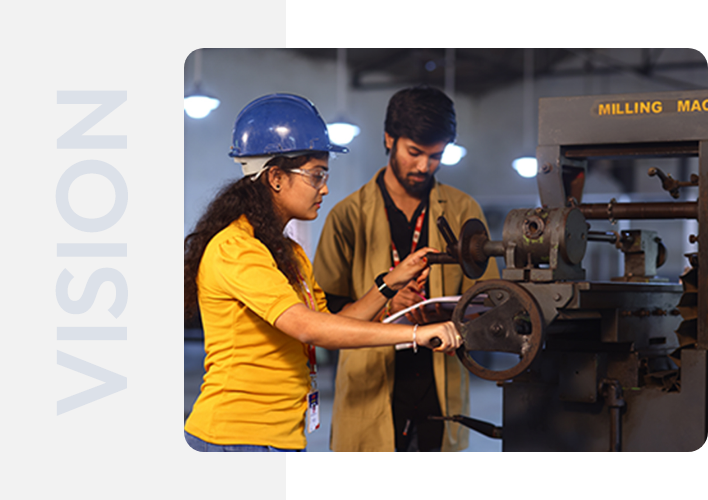
Our Vision
To be a pioneering department in preparing students to compete globally in their profession, and making significant contribution to the society.
Our Mission
- To be the center of excellence with focus on advanced technology.
- To prepare the students for successful career based on strong moral and ethical foundations.
- Commitment to world class teaching, mentoring, intellectual stimulation, industry collaborations, and state of the art research.
- To train and educate students as Global Citizens to become entrepreneurs in their chosen field. projects
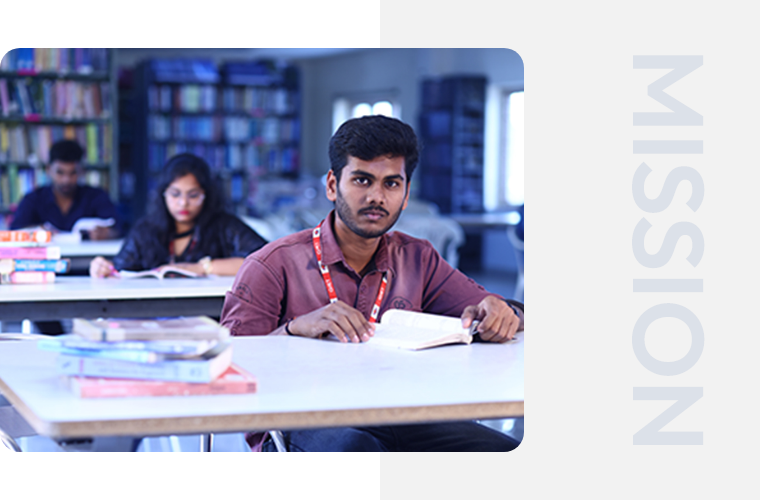
Program Outcomes
After completion of the program, a successful graduate will be able to:
Program Outcomes
- Apply knowledge of mathematics, science and engineering in solving the problems of Electronics and Communication Engineering.
- Analyze problems related to Electrical and Electronics Engineering Field.
- Design Systems and develop solutions for problems in the field of Electronics and Communication Engineering.
- Identify, formulate, and solve complex engineering Systems.
- Employ modern tools for improving efficiency.
- Understand the impact of engineering solutions in societal context.
- Propose environmentally sustainable solutions.
- Understand professional and ethical responsibility.
- Function as an individual and in a team.
- Communicate effectively.
- Apply the knowledge of financial management and project management.
- Engage in life-long learning.
Our Courses
UG PROGRAM
4 YEARS
B-Tech in Electrical and Electronics Engineering
Electrical and Electronics Department
PG PROGRAM
4 YEARS
M-Tech in Electrical and Electronics Engineering
Electrical and Electronics Department
Graduates of this program will be well-prepared to pursue careers in a wide range of industries, as well as pursue further academic and research opportunities.
Board of Studies
Dr. Y. S. Kishore Babu
Dr. B. Ravikumar
Dr. N. Viswanathan
Head of Department
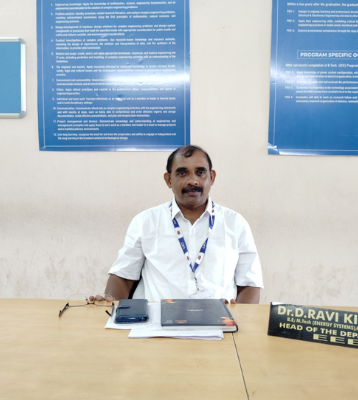
Dr. D. Ravi Kishore
Head of the Department and Professor
Dr. D. Ravi Kishore is working as a Professor in the Department of Electrical & Electronics Engineering at Godavari Global University, Rajahmundry. He graduated from Andhra University, Visakhapatnam, Andhra Pradesh, India He secured Master of Technology in Energy systems, Jawaharlal Nehru Technological University, Hyderabad, India. He secured Ph.D., in Energy systems, Jawaharlal Nehru Technological University, Hyderabad, India. He is in the field of Electrical & Electronics Engineering as a HOD at GGU. Rajahmundry, India. He is in teaching profession for more than 24 years. He has presented more than 60 papers in National and international Journals, conferences, and Symposiums. His main area of interest includes Power systems, Renewable Energy Systems, and Energy Auditing.
Infrastructure
The Department has 7 modern laboratories that serve the learning needs of the students.
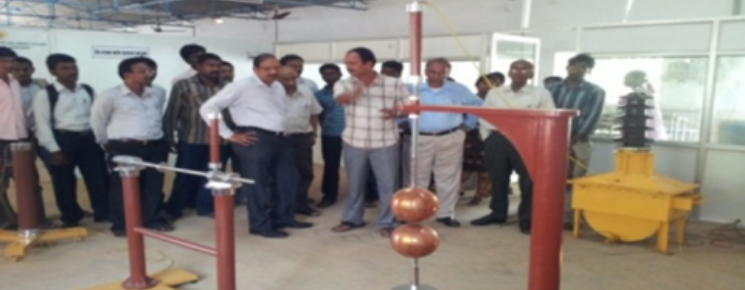
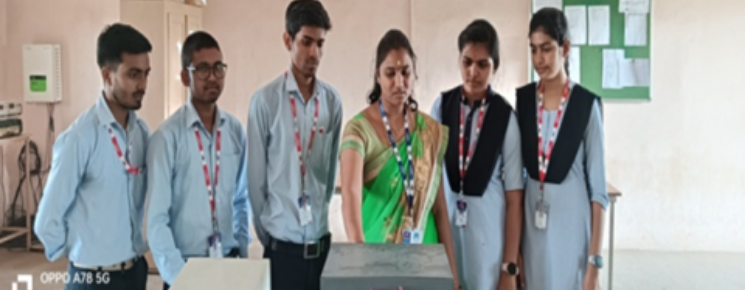
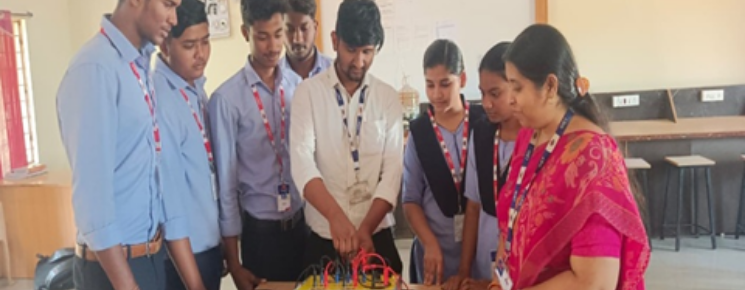
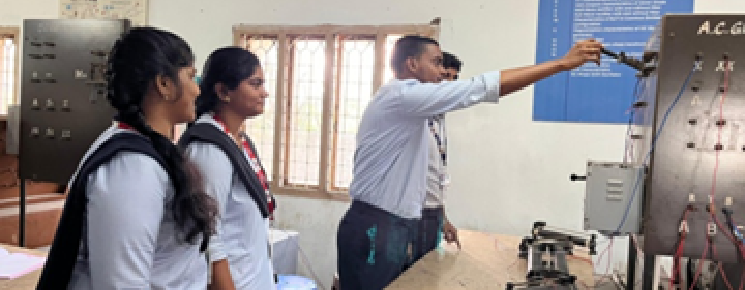
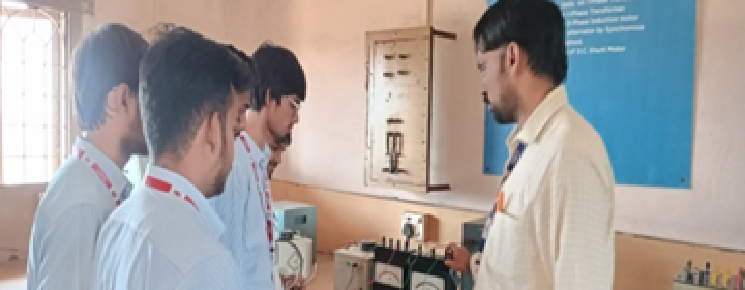
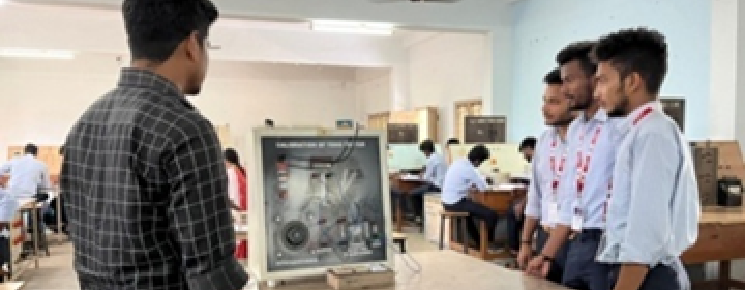
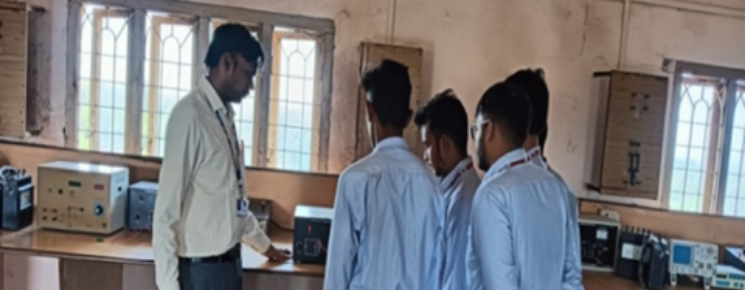
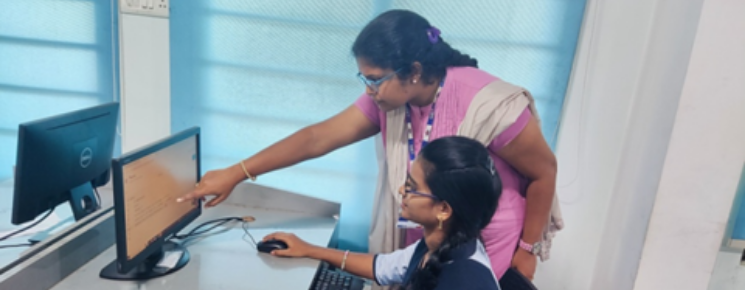
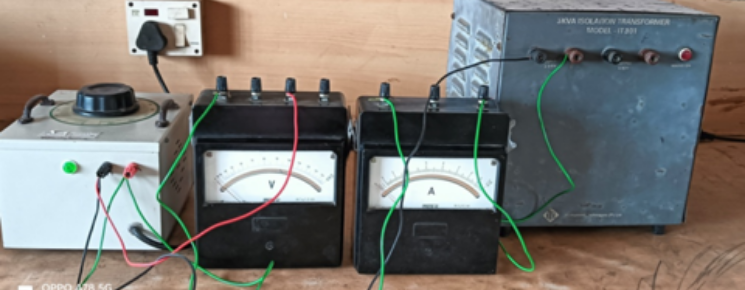
Research and Development
Centre of Excellence
Internet of Things (IoT)
The Internet of Things (IoT) is a course about the new paradigm of objects interacting with people, with information systems, and with other objects. The course will focus on creative thinking and on hands-on project development.
The Internet of Things (IoT) is a system of interrelated computing devices, mechanical and digital machines, objects, animals or people that are provided with unique identifiers (UIDs) and the ability to transfer data over a network without requiring human-to-human or human-to-computer interaction.

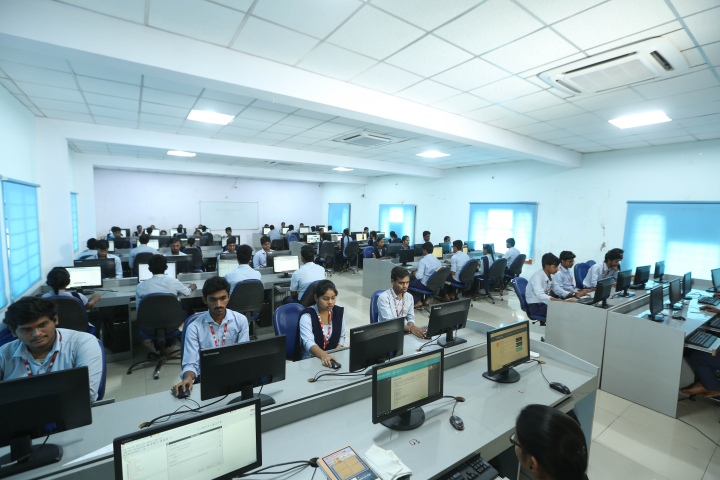
Functionality
- IOT is futuristic emerging area integrated with other technologies and current uses where IOT can be integrated to make a make a quantum jump in the in the efficiencies in application. A willingness to be creative and participate in open discussions is a must.
- The students are able to explain, apply IoT standards and protocols. The students can also apply these standards and protocols in different system architectures found in IoT systems. Additionally, they are able to separate application and protocol logic in the implementation of the IoT devices as well as the application logic of the systems.
Benefits
Students will be explored to the interconnection and integration of the physical world and the cyber space. They are also able to design & develop IOT Devices. The students will learn:
- IOT concepts
- IOT Standards
- Components of IOT System.
- IOT Applications.
- Challenges in IOT implementation.
- Projects (with Arduino Board and Rasperry pi)
- Relevance of IOT for the future.
